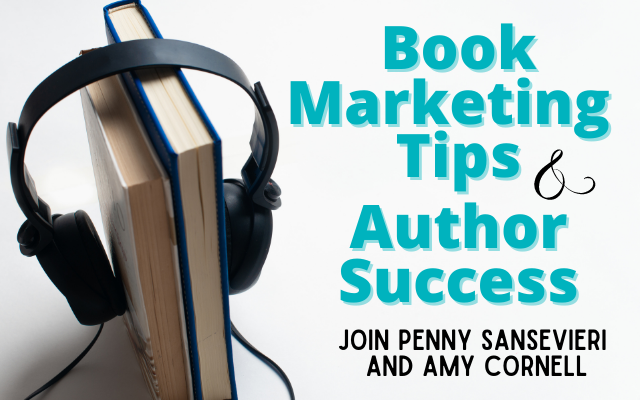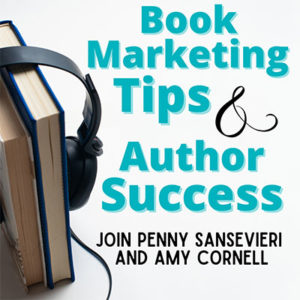Book Marketing Tips & Author Branding Advice

The Virtual Voice Revolution: Redefining Audiobooks with AI
Join us in this week's episode as we dive deep into the latest innovation from Amazon: the Virtual Voice. Imagine a world where authors can effortlessly transform their written words into captivating audiobooks using artificial intelligence. It's a game-changer for...

Self-Publishing a Book: Taking Advantage of Awards and Contests
Book awards and contests can be a great way to give your author brand a boost if you're self-publishing a book. If you’ve never considered participating in a book award or contest, I hope this podcast recap will intrigue you enough to consider it. It’s a great book...

Navigating the Climb: Pitfalls for Authors Eyeing the Summit
In this episode, we take a peek behind the curtain and dive into the sometimes harsh realities of the book publishing world, shedding light on the obstacles that can slow an author's rise to the top – and sharing insights on how to avoid them. While we love authors...

Navigating the Media Landscape and How to Get Your Book the Attention it Deserves
In this episode, Penny and Amy decode the intricate world of big media outlets and help you understand what they're looking for and whether or not you’re right for a big media outlet. We kick off by addressing a common misconception – that success in media...

Riding the Wave: How the Tsunami of Books Reshapes Book Publicity
In my 23 years in business, book publicity has changed a lot – but in recent years it’s really seen a shift both in what we do to get our books out there, and how we execute book marketing campaigns. First, the bad news: there are approximately 3 million books...

Memoir vs. Self-Help: Choosing the Right Genre for Your Book
Join us for a thought-provoking discussion on a common dilemma many memoir authors face: determining whether their book can be classified as self-help. While storytelling and imparting wisdom often go hand in hand, understanding the nuances between these genres is...

Navigating the Unexpected: What Authors Need to Prepare For
Join us for a candid discussion as we shine a light on the often-overlooked aspects of the author journey. In this episode, we tackle the things that many authors aren't adequately prepared for but are crucial to their success. From the seemingly mundane task of...

The 8 Best Book Marketing Strategies Every Author Should Master
People often ask me: what are the best book marketing strategies? In other words: What sells the most books? The short answer is: No one thing sells books. It's always a cumulative set of strategies that gets and keeps your book in front of the reader. The best book...

The Power of Author Education: Why it can Save you Money and Help You Succeed
In this episode, we delve into a crucial but often overlooked aspect of being an author: education in publishing. And we get it, it’s another thing to learn. But it’s crucial to your success and we’ll unpack why. But don't worry, you don't need a PhD in publishing to...

How to Promote Your Novel to the Right Audience
It’s not easy getting noticed these days, especially if you’re writing fiction. And I get it, as an author myself I know how competitive the landscape is. You want to stand out, you want your book to get noticed, but moreover – you want to start selling copies to...
WHY YOUR AUTHOR EDUCATION MATTERS
As the longest-lasting book marketing company in publishing, we will honestly tell you that your author education carries more weight than you realize.
Why? Because you are your brand, and you are the foundation for your success.
And working with a book marketing company like AME helps build off that foundation, so show up for yourself!
Dig through our blog to stay on top of all things Amazon, Goodreads, BookBub, designing special promotions, planning for a successful first book release (or your 20th), tips for publishing with the right format, price, and cover, advice for hiring the right book marketing company, and so much more.
And subscribe to our author podcast to stay on top of what’s going on in the industry, how to avoid common author mistakes, how to take your brand to the next level with local promotions, how to create a strong website, how to generate more newsletter conversions, the secrets to better engagement on social media, and the honest truth about what it takes to impress influencers and the media.
We want to see you succeed, both on your own, and with our help.
If you’re still not convinced, check out our Client Success page! You’ll see honest feedback about what it takes to compete, and how much they’ve learned along the way.
Whether you’re a debut author or a veteran, there’s always more to learn, and we’re confident we’re the book marketing company you need in your corner!

